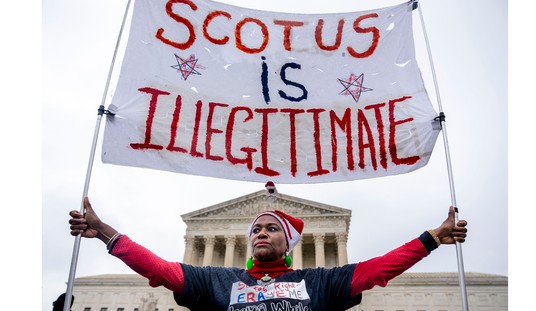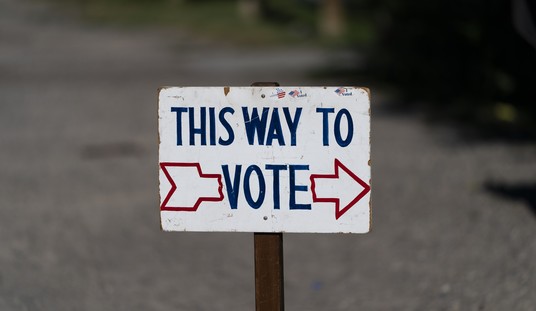On Friday, we celebrated the 249th birthday of the United States of America, with patriotic events, parades, fireworks, and so on, in each of our 50 states and associated territories and possessions in their traditional ways. The usual malcontents, commies, agitators, and nincompoops registered their objections, but if there's any day to ignore the whining of the left, it's on Independence Day.
But is July 4th really the right date to celebrate the birth of the United States? That is the date of the signing of the Declaration of Independence, which was the document by which the newborn United States of America told the world's most powerful empire and the mad king who ruled it where to head in. If we had lost the Revolutionary War, things would have been a lot different - but we didn't lose. We won, and sent the world's most powerful army howling back to Britain with their tails between their legs, making our independence a fact. As the famous guntwist and annalist Elmer Keith said, "It ain't bragging if you can do it."
As for America's real birthday, though, it turns out there's a case to be made for that date being September 3rd.
The historical significance assigned to July 4, 1776, the date the Declaration of Independence was adopted by the Second Continental Congress, is befuddling. Without victory in the Revolutionary War, which began over a year earlier, any declarations regarding American independence made during the summer of 1776 would have the same significance today as the “declarations of independence” made by the 11 Confederate States in 1860-61.
The U.S.A.’s real birthdate is September 3, 1783 – the day the Treaty of Paris was signed.
Now, this was a significant treaty indeed; it put a formal end not only to our Revolutionary War, but to other wars around the globe. Our revolution was only one part of what, today, we'd call a world war. The new United States sent three delegates to the meetings and managed to secure some very favorable terms for our new nation:
From an American perspective, the terms of the treaty were quite generous. Article I contained British recognition of American independence. Article II doubled the size of the country by establishing the Mississippi River as the new republic’s western border. This satisfied the American objective of winning sufficient territorial concessions to allow for westward expansion. The U.S. would double in size again with the Louisiana Purchase two decades hence, but America was already on its way to spanning the continent when the ink touched parchment in Paris.
That ink touched parchment on September 3rd, 1783, as noted. Of course, we ended up crossing swords with England again only a few years later, in the War of 1812, which was, again, part of a larger conflict - the Napoleonic wars. We won that one, too, in the end, although we took some hits, like the White House being burned.
The Treaty of Paris ended this first conflict, though, assuring the United States of America's future in the community of nations. On July 4th, 1776, we declared independence, but on September 3rd, 1783, the British Empire formally admitted it.
The Revolutionary War was merely the North American theater of a world war that involved not only the Americans taking up arms against the British, but also the French, Spanish, and Dutch. Combat spread across the globe from the Caribbean to the Mediterranean to India.
Likewise, the Treaty of Paris was part of the larger “Peace of Paris” that ended the wider conflict. The interlocking agendas of the various powers created complexity, leading Franklin to remark, “There were so many interests to be consider’d and settled in a peace between five different countries that it was well not to flatter ourselves with a very speedy conclusion.”
So, yes, there's an argument to be made for September 3rd being a patriotic holiday, as well. Or at least, a day we should be aware of.
See Also: The Left's Anti-4th of July Celebrations Are About As Pathetic As You'd Think
The Treaty of Paris was an agreement among nations. Our Declaration was just that: a declaration, not recognized by any nation but our own. If the men who signed that declaration had lost, a lot of men we revere today likely would have been hanged, and what we know today as the United States would have remained part of the British Empire. And today? Something like Canada? (Shudder!)
But they won. They ran the British out of our new nation.
And that's precisely why we should continue to mark July 4th, 1776, as the birthday of our republic. The legalities of it are interesting; the Treaty of Paris was a pretty significant document, and it not only gave our new nation the recognition of the European powers but also a big head start on our expansion west. But the Declaration of Independence was where it all began. That was when a group of men, brave men, dedicated men, patriotic men, looked King George III in the eye and told him off.The war was already in progress. The independence still had to be won. It wasn't easy and it wasn't cheap, but it had to be won, and it was. But July 4th, 1776, was the birth of the nation, the first declaration by the colonies that they were no longer to be subjects of a king, but the United States of America.














